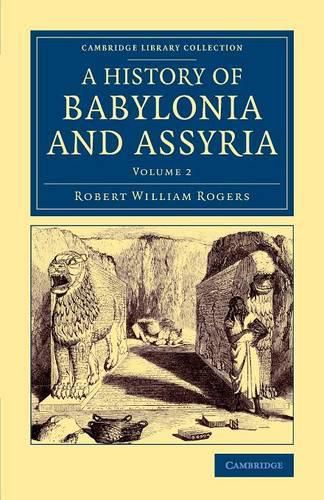Readings Newsletter
Become a Readings Member to make your shopping experience even easier.
Sign in or sign up for free!
You’re not far away from qualifying for FREE standard shipping within Australia
You’ve qualified for FREE standard shipping within Australia
The cart is loading…






Robert W. Rogers (1864-1930), American professor of biblical exegesis, became fascinated by the Hebrew language as a boy, when trying to understand the Book of Job, and subsequently studied ancient languages and history in Leipzig and Oxford, where he became a friend of A. H. Sayce. In this two-volume 1901 work, he provides a history of the Mesopotamian civilisations, but begins with an extensive review of the archaeological and literary sources of information, opening with the earliest accounts of Western travellers. Volume 2 deals with the history of Assyria, from its beginnings through to its expansion (which included the conquest of Babylon), leading to a great empire, its relations with the tribes of Israel, and its decline. The final section covers the Chaldean empire. The work, with its detailed review of and reliance on original sources, is still valuable as an introduction to a long period of ancient Middle Eastern history.
$9.00 standard shipping within Australia
FREE standard shipping within Australia for orders over $100.00
Express & International shipping calculated at checkout
Robert W. Rogers (1864-1930), American professor of biblical exegesis, became fascinated by the Hebrew language as a boy, when trying to understand the Book of Job, and subsequently studied ancient languages and history in Leipzig and Oxford, where he became a friend of A. H. Sayce. In this two-volume 1901 work, he provides a history of the Mesopotamian civilisations, but begins with an extensive review of the archaeological and literary sources of information, opening with the earliest accounts of Western travellers. Volume 2 deals with the history of Assyria, from its beginnings through to its expansion (which included the conquest of Babylon), leading to a great empire, its relations with the tribes of Israel, and its decline. The final section covers the Chaldean empire. The work, with its detailed review of and reliance on original sources, is still valuable as an introduction to a long period of ancient Middle Eastern history.